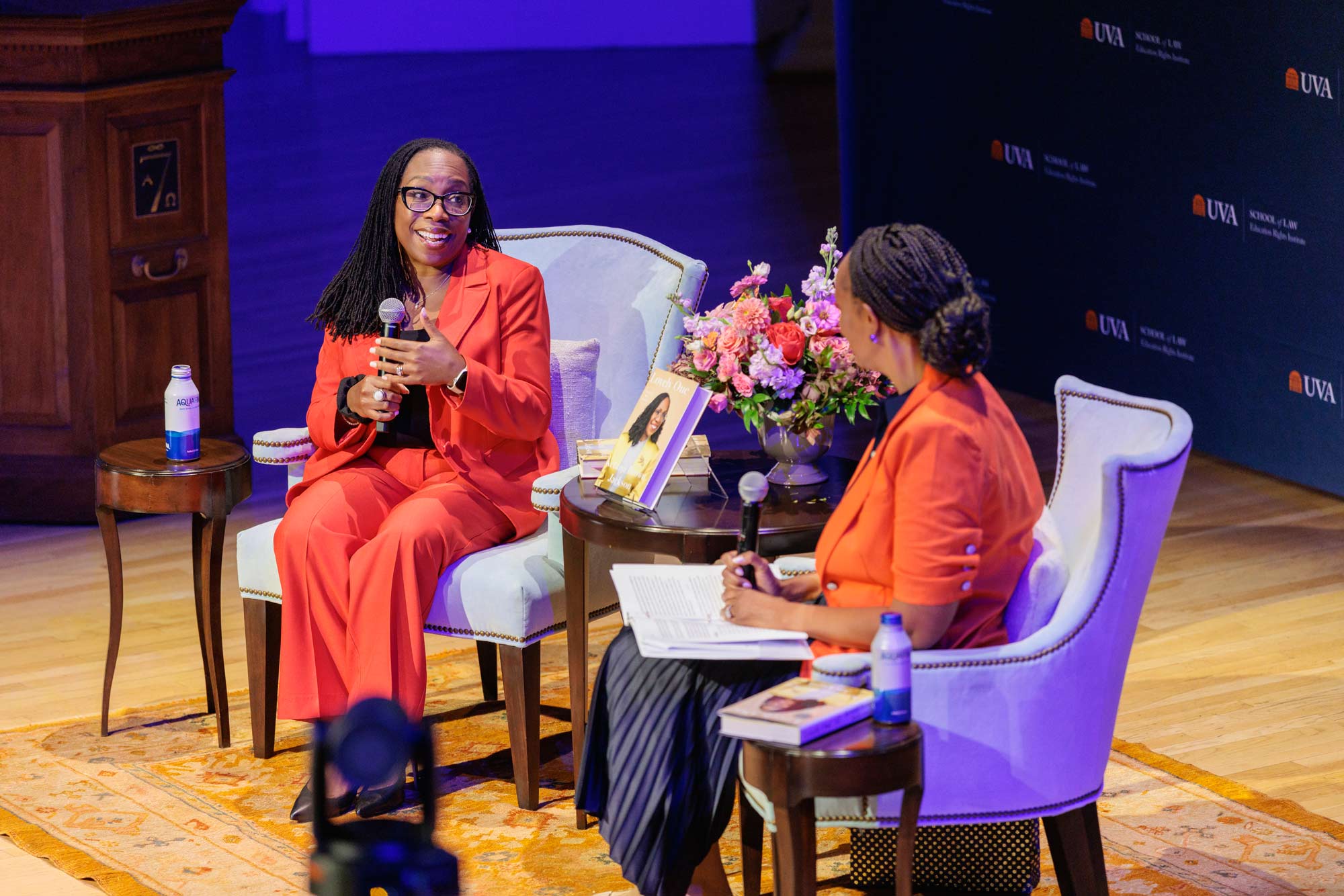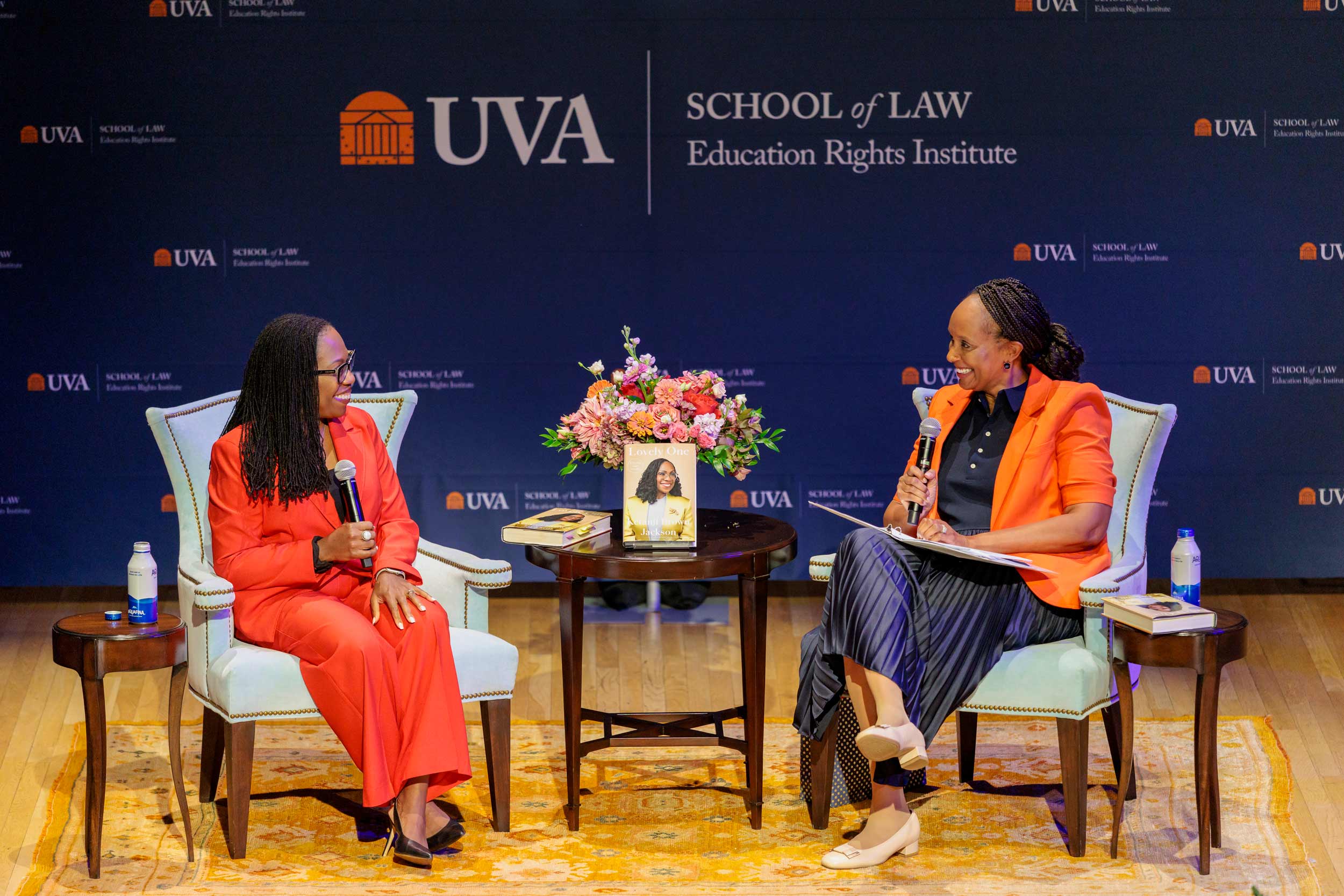Supreme Court Justice Ketanji Brown Jackson’s appearance at the University of Virginia Thursday evening opened with a standing ovation and closed with a spirited chorus of “Happy Birthday to You.”
In between, Jackson shared stories from her memoir “Lovely One,” a New York Times bestseller.
Her upbringing and education were highlights of the casual conversation she had in Old Cabell Hall with her Harvard Law School roommate, Kimberly Jenkins Robinson.
Robinson is the founding director of UVA’s Education Rights Institute, housed in the School of Law. When the equal education rights champion introduced Jackson to the capacity crowd, everyone rose to their feet, applauding as the United States’ first Black female Supreme Court justice walked onto the stage in a crisp, red pantsuit.

Jackson describes her upbringing in Washington, D.C. and later, Miami. (Photo by Lathan Goumas, University Communications)
A broken sink and a life lesson
Jackson was 8 years old, she recounted, when a life-changing moment happened. Her large family had gathered at the Florida home of her grandmother, Euzera Green. It was a Sunday. Church was over.
“My mother says, ‘It’s time to eat.’ I come in and go to wash my hands in the sink, and I look,” the justice said. “And in the sink, there’s a white paper napkin where someone has written a note to tell you that the sink is broken. But I look at this note, and the words are all misspelled.”
The bright young girl, having just aced a spelling test, eagerly went to get her mother to point out the errors. Jackson’s grandmother had grown up in rural Georgia in the 1920s and ’30s with no formal education. Her mother, Ellery Brown, asked her daughter, “Who do you think wrote this note?”
This was a question the justice had not considered. “Just because you’ve done a spelling test, you might think that you are all that,” her mother said. “But that doesn’t make you one bit better than someone who doesn’t know how to spell.”
Crushed, Jackson cried. “The lesson was just how grateful I was to be in a situation in which I had opportunities that my grandmother never had,” she said. “And my mother was absolutely correct that that didn’t entitle me to make fun of someone who didn’t have the same gifts.”










